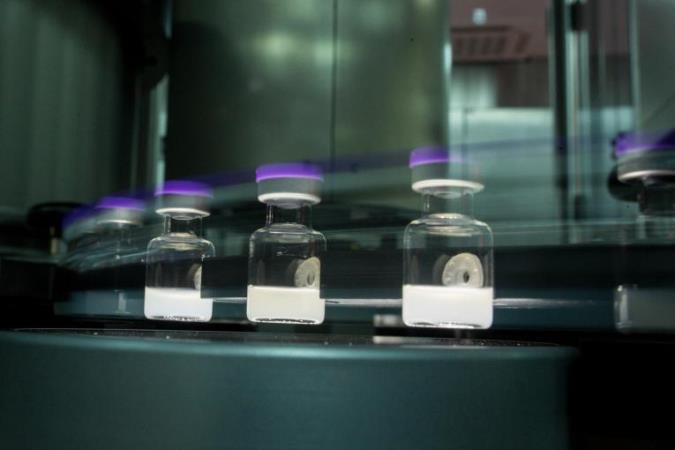UNICEF asks govts to work to avail COVID-19 vaccines

By A Staff Reporter
Kathmandu, Dec. 14: UNICEFF has said that the governments must work together to ensure that COVID-19 vaccines are affordable and accessible to all countries and urged the high-income countries to invest financially in the Advance Market Commitment and in UNICEF’s COVID-19 vaccine delivery efforts.
“COVID-19 is the first truly global crisis we have seen in our lifetimes. No matter where we live, the pandemic affects every one of us. Children have been seriously impacted. However, with more news about promising vaccines, and as we begin to imagine a day when COVID-19 is behind us, our guiding principle must be that the light at the end of the tunnel needs to shine for all,” said UNICEF Executive Director Henrietta Fore on the occasion of UN General Assembly Special Session on COVID-19.
“This is why UNICEF has enthusiastically joined the Advance Market Commitment of the COVAX Facility to allow low- and lower-middle income countries access to COVID-19 vaccines,” she said.
It is the best way to make sure that, as vaccines become available, no country is pushed to the back of the line. This would not only be fundamentally unfair, it would be unwise. The whole world will remain vulnerable to the virus until countries with the weakest health systems are protected from it as well, added Fore.
In order for the COVAX Facility to work and guarantee equitable and affordable access to low- and lower-middle income countries, we need a global commitment to support and capitalize it, but also to finance the delivery of vaccines and associated supplies such as syringes and safety boxes.
In her statement Fore added that the governments must work together to ensure that COVID-19 vaccines are affordable and accessible to all countries. High-income countries should invest financially in the Advance Market Commitment and in UNICEF’s COVID-19 vaccine delivery efforts. All countries should take a strong stand against export controls on – and unnecessary stockpiling of – commodities for the COVID-19 response.
“UNICEF is also leveraging our unique strengths in community engagement and vaccine supply to make sure that countries participating in the COVAX Facility have safe, fast and equitable access to the vaccine,” Fore said.
This is an enormous undertaking and many challenges still lie ahead. As the largest vaccine buyer in the world, procuring more than 2 billion doses annually for routine immunization and outbreak response on behalf of nearly 100 countries, UNICEF is coordinating and supporting the procurement, international freight, and in-country distribution of COVID-19 vaccines for the COVAX Facility, she added.
Together with WHO, PAHO, GAVI and other partners at the global and regional levels, UNICEF is also working to support countries to ‘ready’ their immunization programmes for this historic roll-out. This includes assessing capacity and helping countries to strengthen their cold and supply chains so that they have adequate infrastructure to transport and store the vaccines for delivery to the frontlines.
“However, the existence of a safe and effective COVID-19 vaccine alone will not end the pandemic. We need a diverse set of tools to help slow the spread of COVID-19, including diagnostics and treatments, as well as a continuation of preventive measures such as hand washing, physical distancing and mask wearing. UNICEF is providing governments with access to personal protective equipment, validated testing approaches, and proven treatments. In addition, UNICEF continues to work with multilateral partners to support governments with infection prevention and control, water, sanitation and hygiene supplies, physical distancing, surveillance, contact tracing, case identification and community referral systems to stem the pandemic.”
“Lastly, we continue to help countries ensure the continuity of key essential services for women, children and young people – especially the most vulnerable. COVID-19 related disruptions have had a heavy impact on children: on their safety, their well-being, their future. Even as the fight against the disease enters into a hopeful new phase, we must not forget the work ahead of us to respond, recover and reimagine a better world for children,” said Fore.
Recent News

Do not make expressions casting dout on election: EC
14 Apr, 2022
CM Bhatta says may New Year 2079 BS inspire positive thinking
14 Apr, 2022
Three new cases, 44 recoveries in 24 hours
14 Apr, 2022
689 climbers of 84 teams so far acquire permits for climbing various peaks this spring season
14 Apr, 2022
How the rising cost of living crisis is impacting Nepal
14 Apr, 2022
US military confirms an interstellar meteor collided with Earth
14 Apr, 2022
Valneva Covid vaccine approved for use in UK
14 Apr, 2022
Chair Prachanda highlights need of unity among Maoist, Communist forces
14 Apr, 2022
Ranbir Kapoor and Alia Bhatt: Bollywood toasts star couple on wedding
14 Apr, 2022
President Bhandari confers decorations (Photo Feature)
14 Apr, 2022










